As one of Britain’s largest water companies, Severn Trent provides over eight million people across its region with water every day. So, its call centres need to be ready to service the enquiries of this massive customer base, led by a group of Customer Contact Leaders across the business. Each leader oversees 12-15 reports, prioritising team care through multiple coaching conversations each month.
The majority of these managers get promoted after being outstanding contact centre agents. This means that while they are acutely aware of the pressures of the job, they don’t always start with the right management skills.
We’d worked with Severn Trent on previous learning experiences for practical skills. We set out to create a new experience to help managers practise coaching and interpersonal skills, with an embodiment and perspective-switching element to put managers in their staff’s shoes. Managers practise a conversation with an underperforming employee, using the TGROW coaching model – Topic, Goal, Reality, Option, Way Forward.
Initial results were positive, with managers reporting on a scale of 1-5:
Severn Trent noted that, during coaching conversations, new managers have a tendency to get fixated on call centre metrics without exploring the reasons behind performance gaps. The company wanted to help managers improve coaching conversations, to better understand and respond to their coaches, and ultimately achieve beneficial outcomes for all.
We began with the learning outcomes that the experience should deliver for managers:
Then to help managers step outside of themselves and consider their staff’s perspective, we applied the theory of embodiment as defined and explored by academics such as Professor Mel Slater at the University of Barcelona. Embodiment is a phenomenon unique to the medium of VR. It’s the process of allowing a VR user to step into the shoes of another character to experience the world from their perspective.
Within the experience, learners begin as a new manager in a customer contact centre about to have a coaching conversation with an underperforming employee. Following a brief familiarisation, the learner progresses through the conversation.
They then embody the employee and see the same conversation from this new perspective, giving them a chance to step outside themselves and understand the factors that are affecting performance beyond call centre metrics. Learners then practise a coaching conversation with the TGROW model in mind.
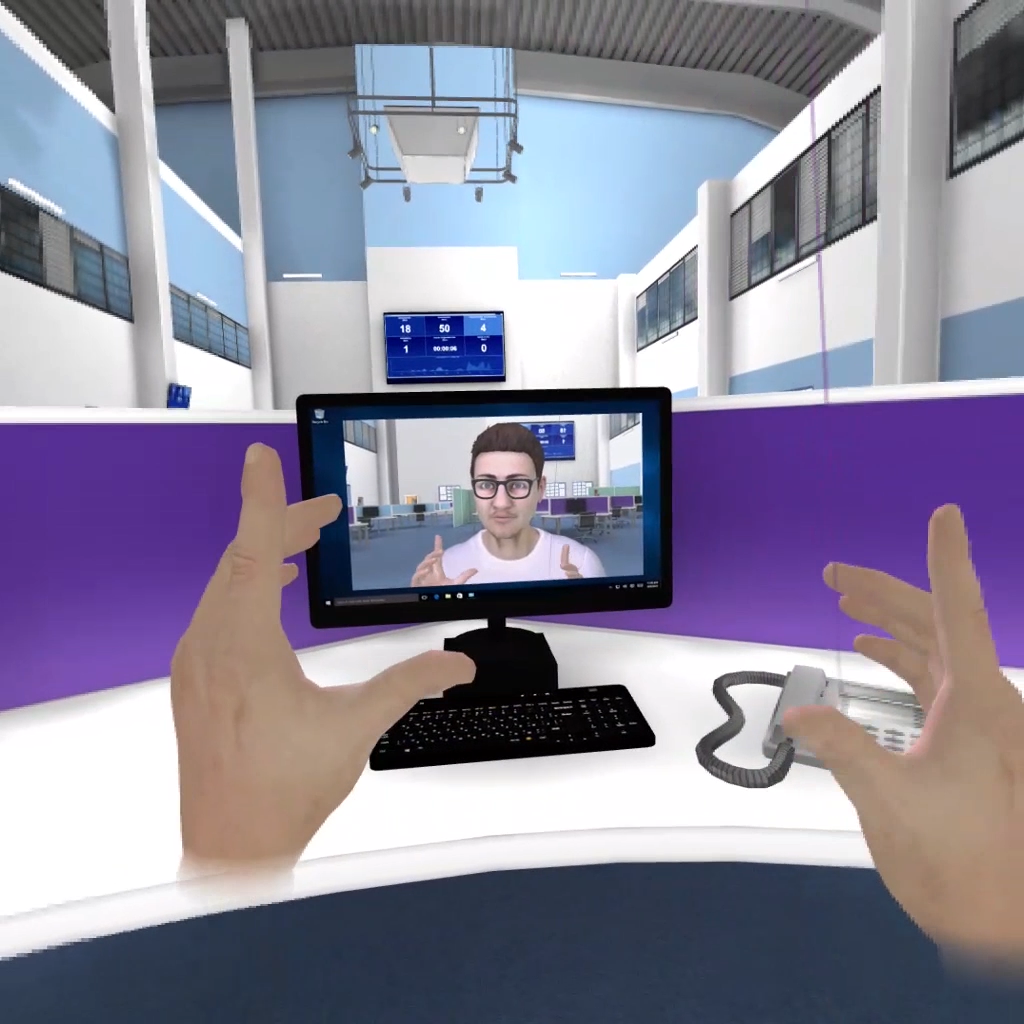
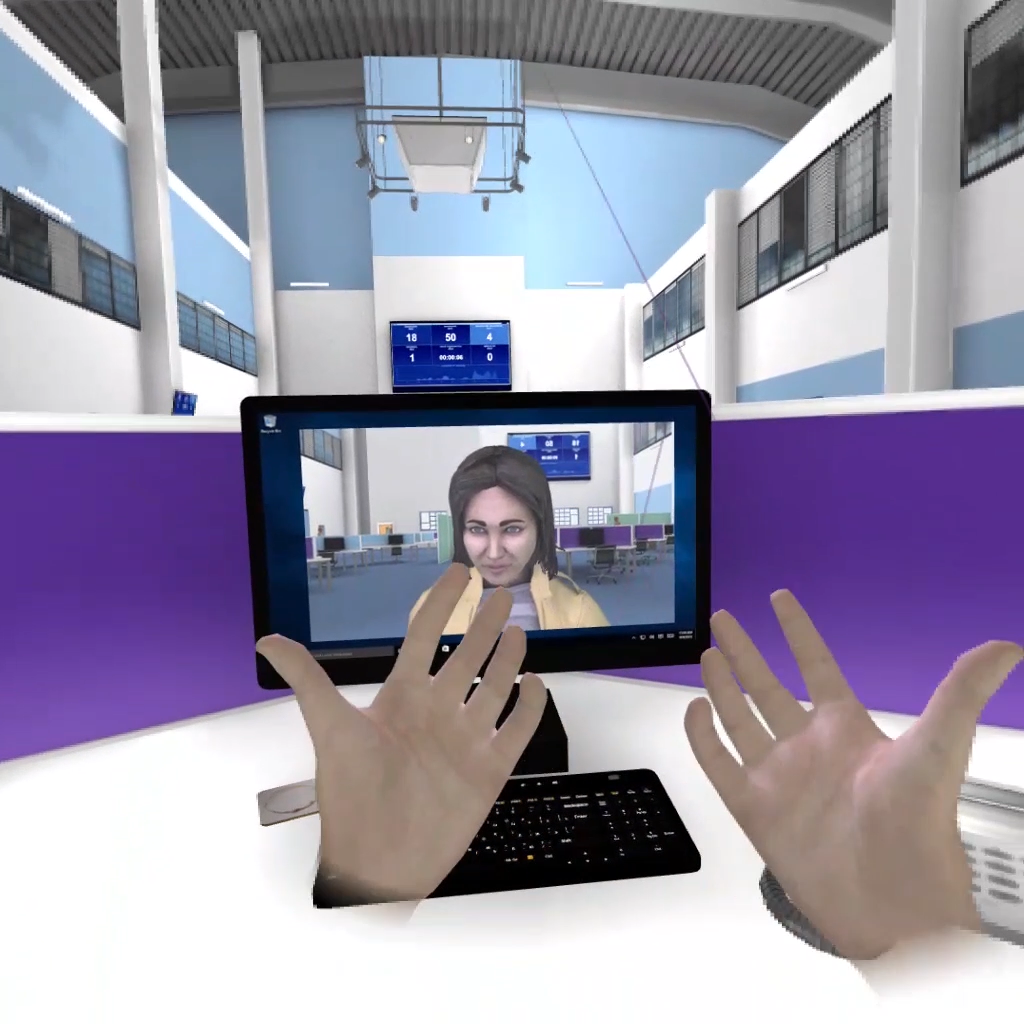
The app uses a specially-designed feedback system to show how they could handle a coaching conversation differently. A gaze-tracking heatmap shows how well they maintained eye contact.
It’s important to note that the app isn’t a purely standalone intervention. Severn Trent blends this learning into a day-long classroom session, in which a facilitator provides theory and best-practice, with the VR app offering an invaluable opportunity to practise. We deployed the experience using Meta Quest headsets for ease-of-use, their tracking capabilities, and untethered VR capabilities.
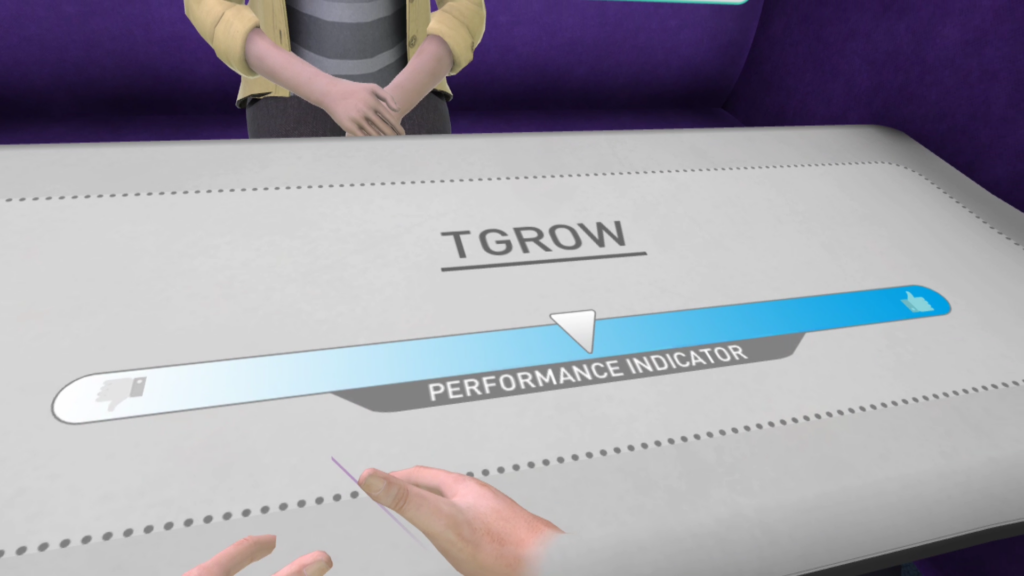
As noted above, an initial launch survey of managers reported on a scale of 1-5:
On the topic of using VR in particular, they reported on a scale of 1-5:
Classroom trainers are a time-poor population and, as a result, can sometimes be resistant to change. However, through carefully managed train-the-trainer sessions the trainers at STW have become real advocates for this experience and able to easily troubleshoot any problems that come up.
Learners also appreciate being able to practise conversations in a VR experience, with one metering team leader commenting: “I was dreading attending this experience as role play isn’t my forte […but] I really enjoyed the VR experience.”
Meanwhile, a billings team leader said: “One of the best training sessions I’ve had – will definitely make me think differently.”
For our part, we enjoyed putting the theory of embodiment into practice with this experience, alongside perspective-switching, which we took forward into other learning experiences such as EDF Inclusive Leadership.
To create the level of realism needed to form an emotional connection with the characters, while working within the constraints of a corporate training budget, we needed to pioneer a new character animation pipeline. Our animator took the audio from our professional voice actors and acted along to the lines, capturing their movements by repurposing HTC Vive tracking pucks. These movements were then mapped onto our character rigs.
For cost-effective lip syncing, we used an iPhone X to capture a volumetric image of the animator’s mouth as they spoke the lines. This process allowed us to achieve greater fidelity and nuance than procedural lip-syncing tools such as SALSA.
You can see a brief overview of the experience below and be sure to get in touch if you’d like to learn more.
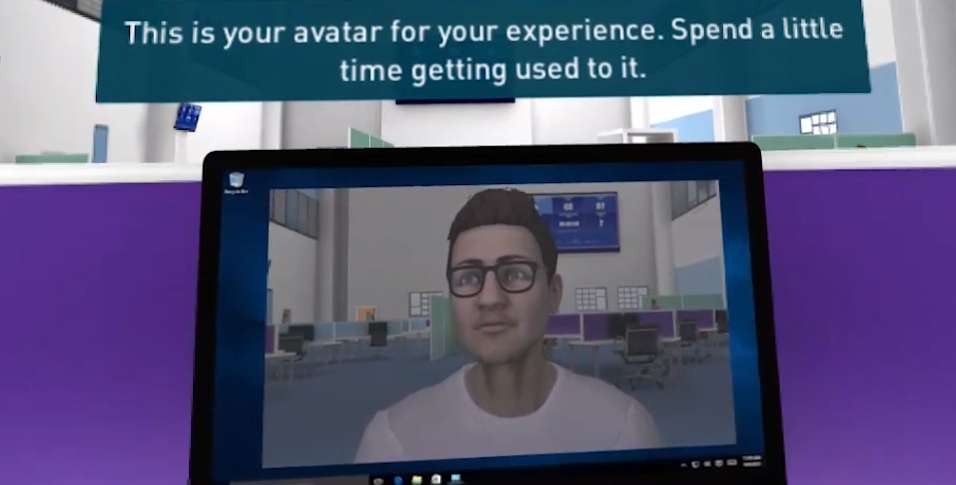
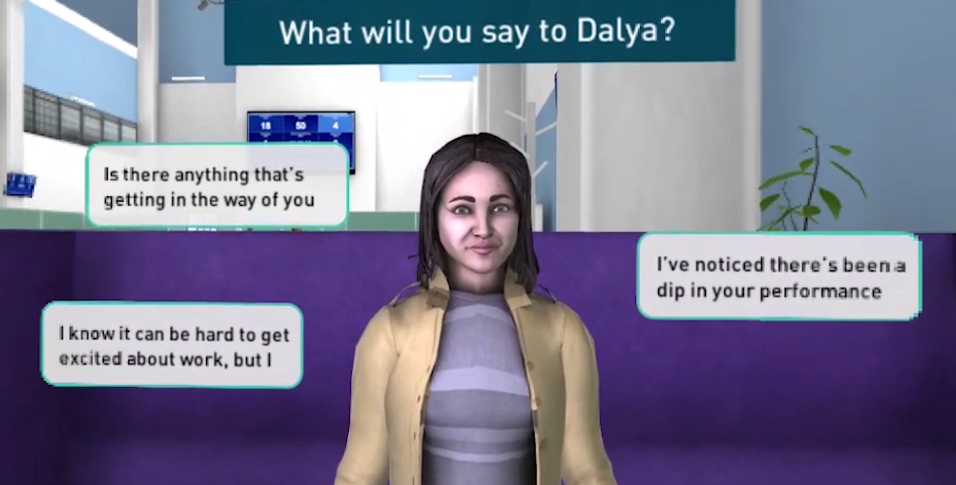
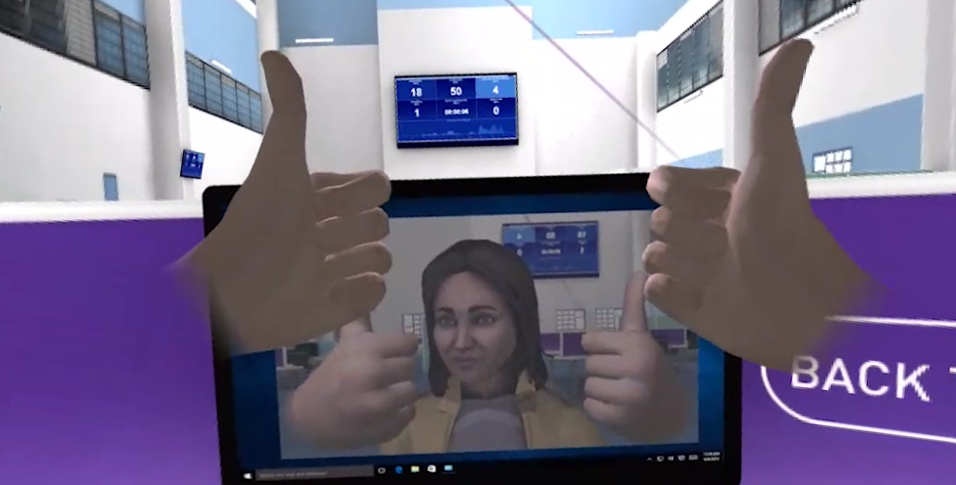
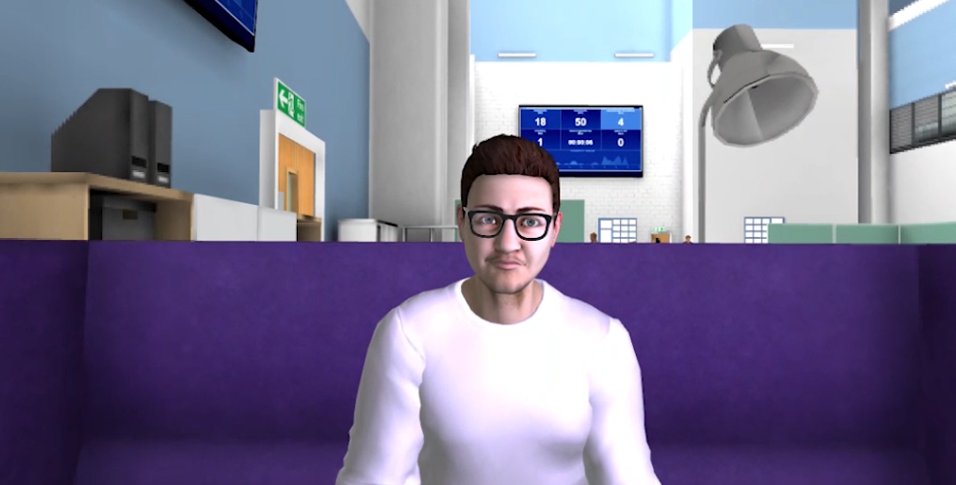
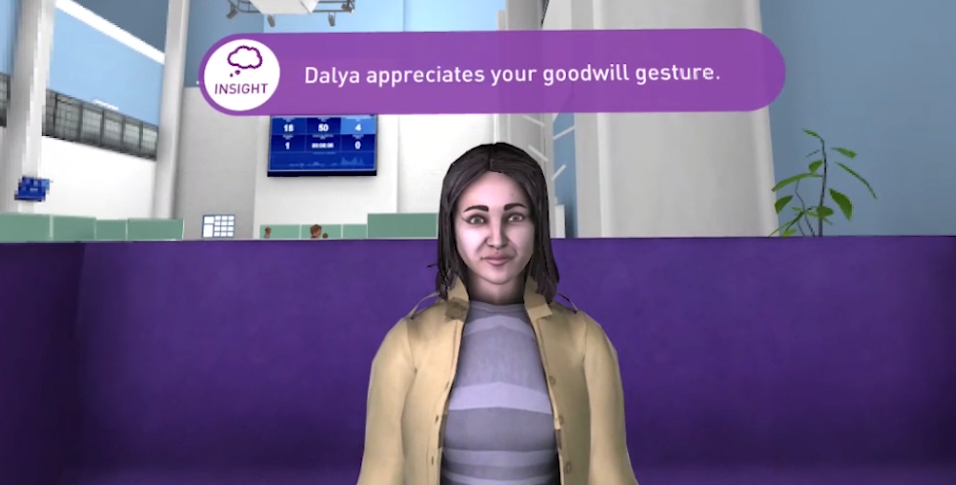
We’re always happy to talk to you about how immersive technologies can engage your employees and customers. If you have a learning objective in mind, or simply want to know more about emerging technologies like VR, AR, or AI, send us a message and we’ll get back to you as soon as we can.